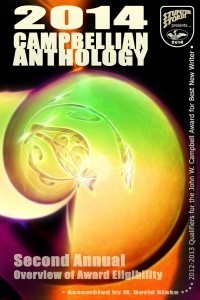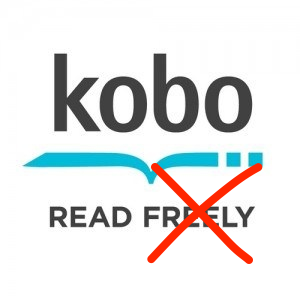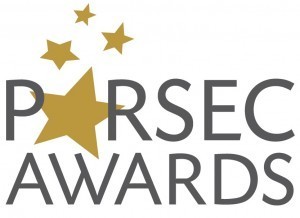M. Darusha Wehm's Blog, page 12
February 17, 2014
Facebook is the Académie Française for English
 Well, no, it’s not. But you’ll see where I’m going with that. Promise.
Well, no, it’s not. But you’ll see where I’m going with that. Promise.
English is an evolving language, as arguably is French, but the rightness or wrongness of word usage in English is all about usage. The venerable OED, my pinnacle for all things English language related is all about usage. Words mean what they do because that’s how people use them. End of story.
But, people use words wrong all the time. See, I just did it their. And they’re. Okay, I’ll stop, but you get my point. There’s usage and usage and that’s where Facebook comes into it.
Many of us have long lamented that English lacks a singular gender-neutral pronoun. Many have tried to address this (my personal favourites are zie/zir) but traction hasn’t really been found. Of late, “they/their” have been gaining ground (I know of a few folks who choose those as their pronouns of choice), but I and many others have trouble with using they that way.
“It is just plain wrong,” we say.
“I can choose my own pronouns,” they counter.
“Well, yeah, but…” we mumble.
“Besides,” they say, “Shakespeare did it. Chaucer did it. Jane Austen did it. If those writers can use ‘they’ as a singular, so can we.”
“…”
We shut up and admit defeat.
But, common usage is they key here, and lots of people just aren’t used to hearing “they” as a singular. But those days are now numbered.
As many people have noted, Facebook recently made it possible to choose from 51 different options when indicating gender (here’s a list of them, with some definitions). That’s way cool on its own, but quietly at the same time, Facebook also allowed users to select the pronouns by which they want to be called. There are only three – she, he and they.
The debate over an English gender-neutral singular pronoun is now over, and zie lost. They won.
I’m okay with that.
January 30, 2014
Campbell Award Contenders – Free Stories and more
 For those who don’t know, the John W. Campbell Award is given out each year at the Hugo Award ceremonies (though it’s not a Hugo) for the best new speculative fiction writer. I happen to be in my final year of eligibility for the Campbell, but that’s only part of why I bring it up.
For those who don’t know, the John W. Campbell Award is given out each year at the Hugo Award ceremonies (though it’s not a Hugo) for the best new speculative fiction writer. I happen to be in my final year of eligibility for the Campbell, but that’s only part of why I bring it up.
First, fellow eligible author Bonnie Jo Stufflebeam sent around a cool little set of interview questions to all the eligible authors she could find, and is posting their responses on her blog. The survey in which I participated is here, but I recommend reading them all. Find a new author whose work you love today!
And, to help out with that, M. David Blake and Stupefying Stories have compiled a massive free collection of stories by 111 (!!) eligible authors. This has to be one of the biggest, most amazing collections of short fiction around, and it’s free for the download. But it’s only available for a limited time, so get it while it’s hot!
January 24, 2014
Angels and Automatons – NZ Steampunk Anthology
I’m participating in a very cool project: Angels and Automatons, a shared-world steampunk anthology.
It’s a bunch of short stories set in the same 1864 fictional town of Angelston, New Zealand, where there is goldrush madness, dirigibles and an inventor bent on solving social problems with stem-powered robots. It’s going to be so fun.
The anthology is the brain child of Stephen Minchin of Steam Press, and is currently being funded through a Kickstarter campaign. Check out the project and authors involved, and if it seems like it might be your bag, chuck in a few bucks for what is undoubtedly going to be a fascinating and unique story.
December 18, 2013
Still reading on paper? I’ve got you covered.
 Just in time for the New Year! You can now get paperbacks of my novels from most online booksellers, including:
Just in time for the New Year! You can now get paperbacks of my novels from most online booksellers, including:
Amazon Canada (and other local Amazons)
Barnes and Noble
Book Depository (free shipping worldwide!)
Powell’s
Books a Million
November 20, 2013
My next novel to be published by Bundoran Press
 I am delighted to announce that my next novel will be published by Canadian publishing house Bundoran Press.
I am delighted to announce that my next novel will be published by Canadian publishing house Bundoran Press.
Bundoran is an award-winning small press and I’m thrilled to be working with them on my next novel, codenamed The Wheel.
It is a stand-alone multi-generation space colony story, with advanced general intelligences, politics and goats. It is tentatively scheduled for release in November 2014.
From the press release:
Ms. Wehm’s new novel “The Wheel (working title)” is set aboard a vast space station orbiting Jupiter where political exiles from Earth and network- based Artificial Intelligences struggle to forge a new life and a new society. The book explores the limits of human freedom within a civil society and the true nature of love.
October 29, 2013
Kindle MatchBook live for all my books
Good news:
If you buy (or have already bought) a paperback copy of any of my books from Amazon.com , you now can get a kindle version of the same book from Amazon for free
, you now can get a kindle version of the same book from Amazon for free .
.
October 26, 2013
New Audio of my story “Modern Love”
This little delight lured me in and took me somewhere completely unexpected. Love is weird. But this story is a gem. – Nathan Crowder, on “Modern Love”
My story, “Modern Love,” is up over at Wily Writers. For the audio fans out there, it is read beautifully by Folly Blaine, so go grab the mp3 or subscribe to the other great stories at WW. It’s also available as text if you’d rather just read it the old-fashioned way.
I was thrilled when “Modern Love” won second place at the Wily Writers/SpecFicNZ short story competition, judged by Nathan Crowder, quoted above. “Modern Love” placed after the absolutely excellent “The Mary-Jane Effect” by AJ Fitzwater, which I highly recommend.
October 18, 2013
Kobo UK Fiasco
Longstoryshort: Kobo UK have pulled most self-published and many small press titles from their store, including all of my novels and both Plan B anthologies. In a related situation, WHSmith (UK) closed their entire online bookstore for a time and they appear to have removed all ebooks upon reopening. Whitcoulls‘ (NZ) ebookstore is still closed as of writing.
The rest of the story:
In what I am confident is going to be regarded as one of the most bone-headed decisions in a while, Kobo UK has chosen the nuclear option in response to a, frankly, ridiculous move from UK bookseller WH Smith. In what really reads as bad parody, the Daily Mail published a bit of yellow journalism about erotic titles available at WH Smith via Kobo. WH Smith had a shit fit and closed their entire online store then Kobo responded by removing all books published via Draft2Digital, as well as many via Smashwords and their own WritingLife program.*
Books removed include self-published titles as well as titles published through traditional publishers who use the same distribution services. Because Kobo redirects users to their local site based on IP address, it isn’t immediately evident to authors and publishers outside the UK if their books have been removed. I did some investigating using a UK VPN and found that my books have all been taken down in the Kobo UK store.
Here’s a screenshot of the New Zealand Kobo storefront:
[image error]
A search for “Wehm” in the New Zealand Kobo store
Here’s what UK Kobo users will see:
[image error]
A search for “Wehm” in the New Zealand Kobo store
I guess I should count myself as lucky that the freebies that were scraped off the Internet Archive are still there.
This is, obviously, outrageous. Kobo, WHSmith and Whitcoulls should all be ashamed of themselves.
*Much of the details come from David Gaughran’s post here.
September 11, 2013
Giving Up Snark

Oscar the Grouch by Noodlefish, from Flickr
For as long as there have been books, we have judged each other by what we read. Indeed, one of the laments in an ebook world is that we no longer have one another’s bookshelves by which to compare ourselves. The closest approximation are social reading sites like Goodreads which let you compare your virtual shelf with those of your friends, always an entertaining exercise.
Of course, the corollary advantage of ebooks is that no one needs to know what you’re reading. It’s safe to read a “guilty pleasure” on the train without fear of nasty looks from your snobby or prudish seatmate. Which, these days, is a necessity.
We seem to me to be living in an age of opprobrium, where one of the final frontiers of acceptable bigotry is in matters of taste. Examples of things it’s fashionable, maybe even required to despise are everywhere. Most recently comes to mind the widely shared live-tweeting of someone’s snark-filled reading of Fifty Shades of Grey (#50ShadesofShade).
The Fifty Shades books are a series I’ve yet to hear anyone admit to have enjoyed, yet obviously many people have as they’ve sold a gazillion copies and the film has just been cast. Clearly, more people like these books than don’t, but it’s painfully uncool to admit it (amusingly, in this case, not because they are smutty, but because they apparently aren’t good smut).
It’s easy to be snarky about books that aren’t to my taste, that I find poorly written or plotted, and that sell by the boatload. And it’s just as easy to justify meanness by pointing to financial success or extolling the virtues of honesty in reviews. But there’s a difference between a well-reasoned, honest negative review and the petty nastiness that seems to permeate conversations about books (and films, music, comics, whatever) that the culture has determined to be Bad™.
To be clear, I’m talking about making fun of art because of its perceived lack of quality, not about calling out aspects of work that is problematic or offensive. This is about statements like “I can’t believe Blank is so popular, a lemur could have written it,” not “It’s a shame Blank has such an insensitive and anthropocentric portrayal of lemurs.”
And of the former, I’ve had enough. I’ve been guilty of this plenty, and justified myself with the knowledge that everyone knows that X-author can’t write and that Y-book is just plain terrible, as if the success of something that isn’t to my taste somehow diminishes everything that is. But it’s just bullshit. It’s tearing something down in order to build yourself up, which ultimately has the opposite of its desired effect. So, I’ve decided to give it up.
I’m not going to stop recommending the things I like, or honestly reviewing the things I didn’t, but I am going to start putting a real effort into not judging other people by their taste in what they choose to read or to write. It’s petty, pointless and rude, and unlike those books we all love to hate, the culture of snark really does diminish us all.
De gustibus non est disputandum.





